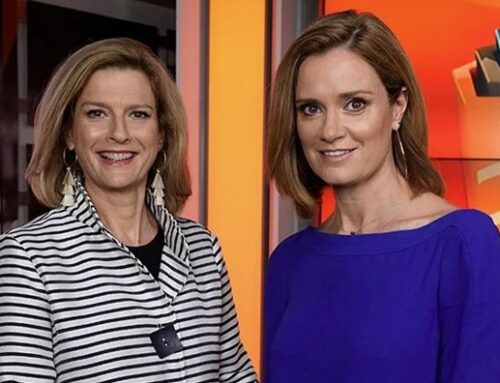Crikey | Alexandra Wake | March 26, 2024
Why the ABC’s ‘impartiality’ warning isn’t the full story.
 The ABC’s chair Kim Williams has come out firing in his first week in the role, telling journalists they must acknowledge the broadcaster’s statutory requirement to be impartial or walk out the door.
The ABC’s chair Kim Williams has come out firing in his first week in the role, telling journalists they must acknowledge the broadcaster’s statutory requirement to be impartial or walk out the door.
Often, it’s not that simple. It’s always been one of the most difficult things to teach young people, but if they want to be a journalist they need to be impartial, park their views at the door, and embrace a sceptical mindset.
As an associate professor in journalism, I’ve always told my students that, as a 17-year-old cadet at a country newspaper, I was schooled by my editors not to join any kind of group (except the union), not to sign a petition no matter how innocuous or worthy the cause, and certainly not to discuss with anyone my politics or religious beliefs.
I remember one editor bellowing at a class of young cadets to heed the trial of Chilean dictator Augusto Pinochet, in which the impartiality of the judge was challenged as he was a member of Amnesty International. We couldn’t even join Amnesty.
When I worked at the ABC from the early 1990s to the mid-2010s, I knew the statutory requirement for ABC journalists was to be impartial and that our mission was to provide accurate, fair and unbiased information with a wide range of perspectives. The editorial standards required staff to “ensure that editorial decisions are not improperly influenced by political, sectional, commercial or personal interests”.
But in 2024, our journalism tutorial rooms are filled with young hopefuls who scoff at the idea they should not bring their whole selves to a story. They are often encouraged in this view by younger academics, some of whom did not receive the same newsroom indoctrination as me and, thanks to the broken news business model, may have had a career that never included time in a mainstream newsroom.
As a result, you can expect new journalism graduates to bring to their storytelling youthful idealism, support for diversity and intersectionality. They know the value of their unique perspectives to news-telling. They argue, and to some extent they are right, that a reporter can bring much more to a story by acknowledging their association with it, rather than pretending that it doesn’t exist.
However, that freshness of ideas and acknowledgement of a journalist’s views is exactly why there is now such a visible age and culture gap at the ABC. The national broadcaster has been trying to fulfil its traditional public service broadcasting objective without a shared vision with its increasingly diverse staff — reporters who simply do not believe that impartiality can exist, at least not in the way older generations of journalists supported.
In our classrooms today, we teach journalism’s history so everyone who graduates understands that impartiality is a recent idea that arose from commercial imperatives, not truth-seeking ones. More than 100 years ago, it was easier for a newspaper to sell more copies if it was seen to be providing balanced coverage and not favouring one side. At the turn of the last century, impartiality was an exciting new commercially successful way of doing journalism — taken on with gusto by public service broadcasters in the BBC Reithian tradition.




